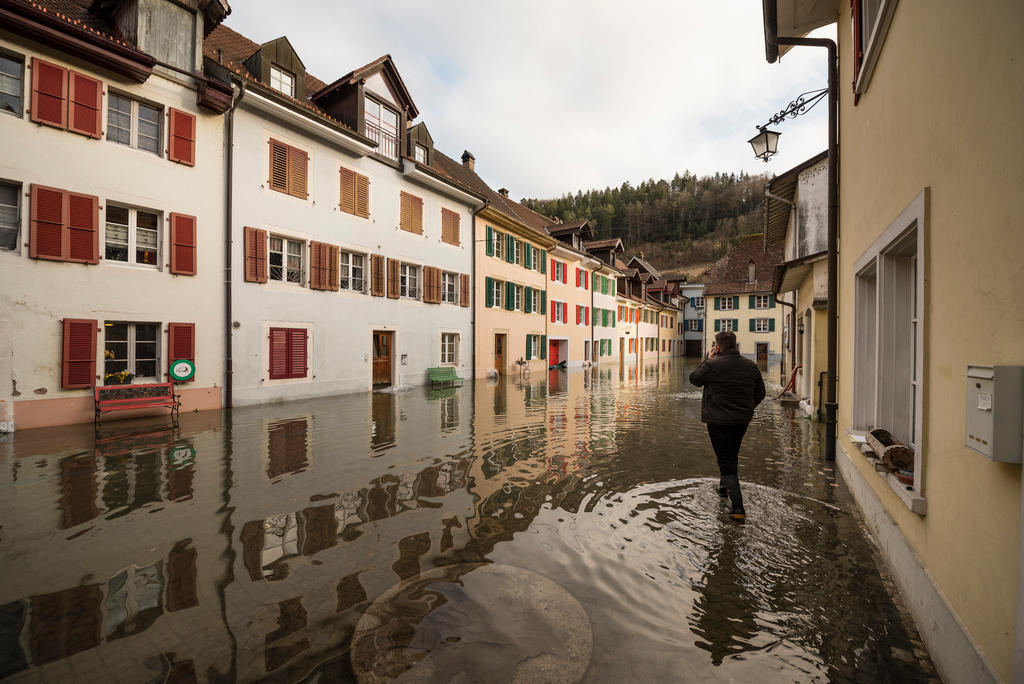
Flood map highlights areas at risk

The Swiss government has launched a nationwide, interactive map tool detailing areas with potential flood danger.
The maps are the first to cover the entire country and help to assess flood risks and potential damages, wrote the Federal Office for the EnvironmentExternal link in a statementExternal link on Wednesday.
The level of detail that has been compiled means that the risk can be predicted not only for whole postcode areas, but for individual buildings in Switzerland.
“Initial evaluations show that around 60% of buildings in Switzerland are potentially affected,” said Roberto Loat of the Federal Office for the Environment.
Up to half all floods in Switzerland are not caused by overflowing rivers and lakes, but by rainwater not being absorbed into the ground, according to the government’s figures.
The authorities therefore believe that flooding is an underestimated danger, because the focus so far had been placed primarily on containing Switzerland’s many rivers and lakes.
The online maps are available for free and were created in collaboration with the national building insurance association and cantonal insurers.
The hazard map’s colour scheme gives an indication of the level of risk; the darker the shade of purple shown, the higher the water level is predicted to rise during a flood.
Effective measures
The good news for homeowners is that the risk of flooding can often be drastically reduced by relatively easy and inexpensive measures, according to Loat.
“Often it may be enough just to slightly raise the house or garage entrance to avoid damages,” he said.
+ Flooding, power outages and road blockages
The cantonal and federal authorities believe that the nationwide mapping system will help reduce the damages caused by future floods throughout the country.

More
Flood and landslide damage in 2017 cost CHF170 million

In compliance with the JTI standards
More: SWI swissinfo.ch certified by the Journalism Trust Initiative




























You can find an overview of ongoing debates with our journalists here . Please join us!
If you want to start a conversation about a topic raised in this article or want to report factual errors, email us at english@swissinfo.ch.